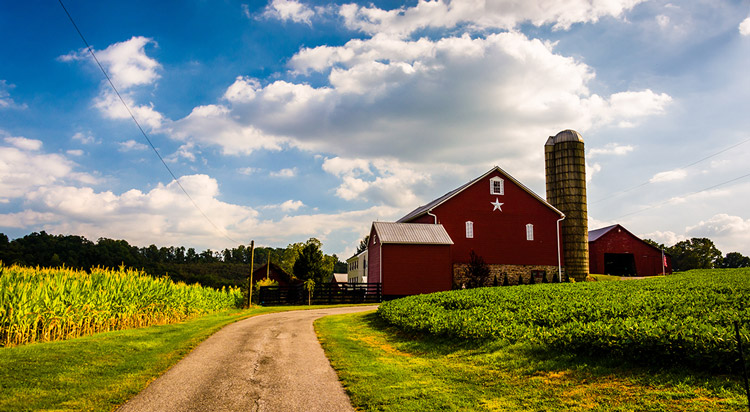

Buying Farmland: Important Considerations
Central New Jersey’s Agricultural Real Estate
By Nicole L. Voigt, Esq., Attorney at Law
In Central New Jersey, we are blessed with the productivity and aesthetics of abundant agricultural lands. Whether they are in commercial agricultural production, a community supported farm, the home of equine enthusiasts, or part of a farm-to-table household, these farms form our unique and holistic landscape. They also come with an overlay of agricultural laws and unique due diligence requirements.
Important Considerations When Purchasing a Farm
When purchasing agricultural lands, it is important that the farm purchase be carefully vetted pursuant to properly drafted contract rights. A standard form of realtor’s contract and standard form seller’s disclosure do not include important contingencies and representations, and are inadequate protection for buyers. A realtor recently asked me to prepare an advance list of questions for an out-of-state buyer who was traveling to New Jersey to view a potential farm acquisition. These are the first questions that came to mind:
- Will the agriculture activities be for a primary business, hobby business, or personal enjoyment?
- Will the buyer reside on the property, or reside elsewhere?
- Will the farm be used for a business? If so, is it an existing business, or new?
- What outbuildings does the buyer require, such as: barns; stables; housing for farm workers; structures for processing of farm products; a market; etc.?
- How will the agricultural lands be used? For example, which crops, livestock, woodland management, or agricultural activities are planned?
- Is the farm subject to farm agency agreement and/or Farm Conservation Plan, Woodland Management Plan, or similar?
- Will the buyer be directly engaging in the agricultural/woodland use, or will they license the agriculture to a third party farmer, rancher, or woodland management firm?
- Will the buyer be seeking organic certification, or does the buyer require agricultural lands that are already organically certified?
- What past uses and practices of the farm will be of concern to the buyer, such as the use of particular pesticides and/or engaging in certain agricultural practices that conflict with the buyer’s plan?
- Does the buyer want to engage in future development of the farmland? If so, is the future development agricultural, residential, or commercial? Development may be restricted by preservation easements and/or zoning.
- Does the buyer want to hold events at the farm, and if so, what is the nature and capacity of the events?
- Does the buyer want a reduced tax assessment, and if so, what is the expected acreage and nature of the qualifying lands (i.e. appurtenant woodland/wetlands versus active production and/or woodland)?
- If the lands are already farmland assessed, has the seller of the farm maintained the agricultural production in the preceding years, and submitted FA-1 applications each August 1st?
- Is the buyer seeking to sell the development rights, such that the land becomes “Farmland Preserved” and restricted to agricultural production? If so, how important is this, given that preservation is subject to the political and financial priorities of local and state agencies, and cannot be guaranteed?
- Is the farmland also in the Highlands Preservation and/or Planning areas?
- Does the buyer understand their option to engage in a tank sweep in the vicinity of existing and known, demolished structures and/or such additional locations as recommended by an expert?
- Does the buyer understand their option to invest in a Phase I environmental site assessment which identifies potential environmental risks, and to seek “innocent owner” status for any releases of hazardous substances that occurred prior to taking title?
Hire Qualified Professionals Familiar with Agriculture
Fortunately, Central Jersey is also home to professionals, contractors, and lenders with first-hand experience and expertise in agricultural real estate. My contacts with agricultural focus include lenders, appraisers, surveyors, engineers, realtors, contractors, biologists, and of course, attorneys like myself. While not every question on the above list is going to be of equal importance to all buyers, these questions help start the conversation with potential buyers and sellers of farms, to ensure that the transaction proceeds with proper representation and focus.
THE INFORMATION CONTAINED HEREIN IS GENERAL INFORMATION, IS NOT LEGAL ADVICE, AND DOES NOT CREATE AN ATTORNEY-CLIENT RELATIONSHIP. YOUR SPECIFIC FACTS AND CIRCUMSTANCES MUST BE CAREFULLY REVIEWED WITH A RETAINED ATTORNEY PRIOR TO REACHING LEGAL CONCLUSIONS.
You may contact Nicole at (908)801-5434 or info@nlvlegal.com. For more information, visit www.voigtlawoffice.com.




